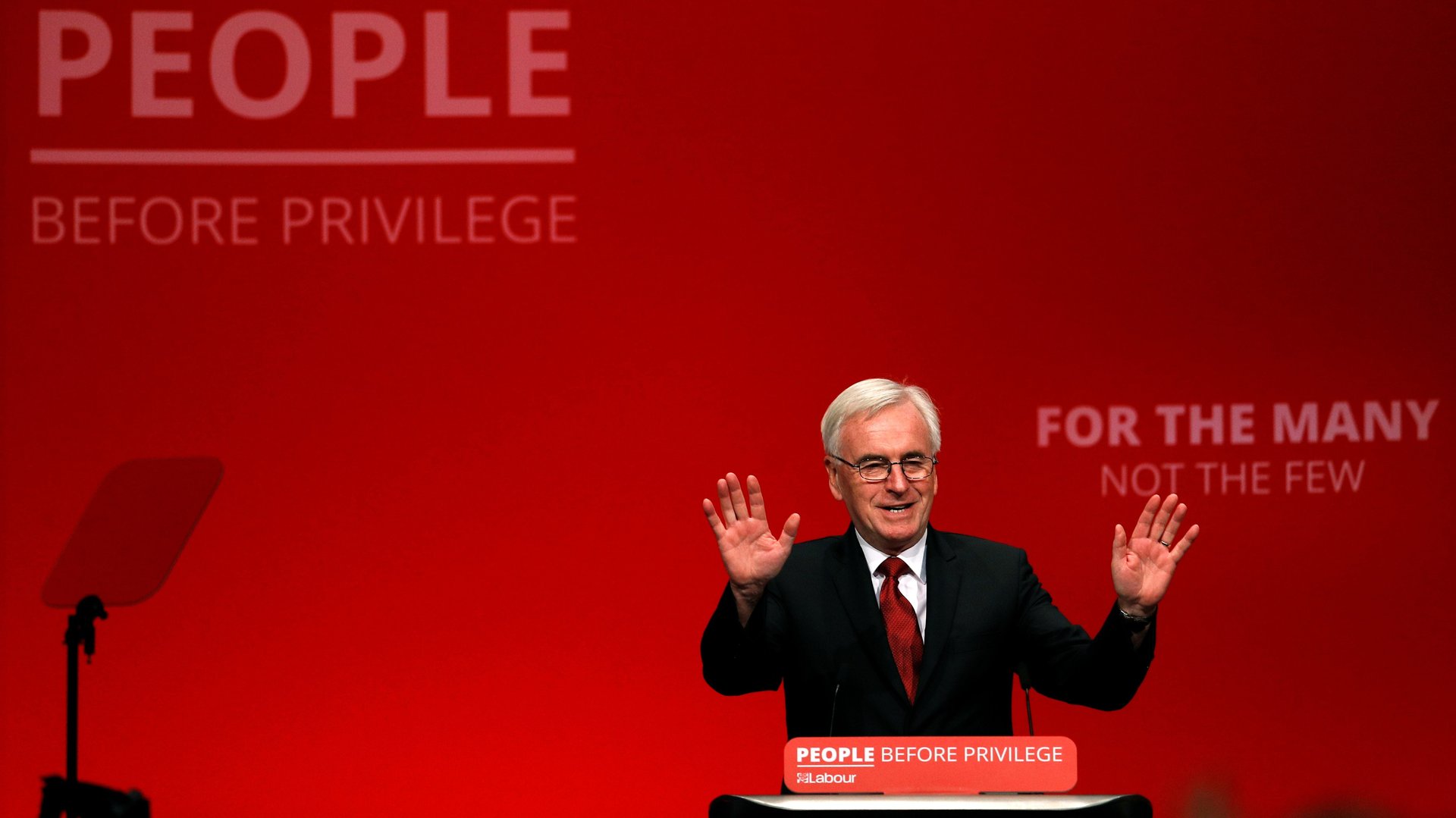The UK’s opposition party says it will introduce a 4-day week for the entire country
In the last months, the UK has seen a small-but-steady stream of companies reducing the number of days employees work without cutting their pay. They’re still in an exceedingly small minority. But today the Labour Party, currently the main opposition party to the ruling Conservatives, said that if it’s elected, it would bring a 32-hour working week to the entire country within 10 years.


In the last months, the UK has seen a small-but-steady stream of companies reducing the number of days employees work without cutting their pay. They’re still in an exceedingly small minority. But today the Labour Party, currently the main opposition party to the ruling Conservatives, said that if it’s elected, it would bring a 32-hour working week to the entire country within 10 years.
John McDonnell, the shadow chancellor—who would be in charge of the country’s budget were Labour elected—spoke of the proposal at the party’s annual conference, saying, “We should work to live, not live to work.”
“So I can tell you today that the next Labour government will reduce the average full time working week to 32 hours within a decade. A shorter working week with no loss of pay,” McDonnell said.
The speech didn’t detail exactly how a shorter working week would be structured, but 32 hours equates to four 8-hour days in any given week, or five days working a maximum of 6.4 hours.
The idea, while attention-grabbing, is likely to require a much more nuanced approach, by any future government, than simply capping the number of hours people are allowed to work. A report (pdf) commissioned by McDonnell and released earlier this month argued against any “one-size fits all” policy, noting that a 35-hour-a-week cap in France brought into force in 1998 had mixed results. It cited evidence gathered by Unite the Union, a major industrial-rights body, that “UK employees, whilst welcoming the goal of shorter hours, want the specifics of working time reduction to be decided on a sectoral level.”
Even campaigners for shorter working hours counseled caution. Charlotte Lockhart, CEO of 4 Day Week Global, which campaigns for companies to move to shorter weeks, said she was wary of a politically motivated push toward shorter weeks, saying the issue is “apolitical” and should, she suggested, be led by business.
“I’m not in favor of legislation, because that is merely a conversation about time. What we’re saying is that we need to be more productive…Time [and getting it back] becomes the outcome of increased productivity,” Lockhart told Quartz.
Lockhart’s organization is an offshoot of the research undertaken by New Zealand company Perpetual Guardian, which moved its entire staff to a four-day week with no pay cut in November 2018, after a successful trial. Key to making the move work was measuring productivity and keeping it steady, even as hours reduced, according to Andrew Barnes, Perpetual Guardian’s owner.
Additional details released by Labour alongside McDonnell’s speech said it recognized “that different sectors will need to respond in different ways.”
The Labour announcement comes at a time when all the UK’s political parties are struggling to offer voters a coherent message about Brexit. Labour has been heavily criticized for failing to unite in favor of any specific way forward were it to come to power. Right now, the party is still debating whether or not it would campaign for the country to remain in the European Union, were Brexit to be delayed beyond the current Oct. 31 deadline and were another referendum to be called.